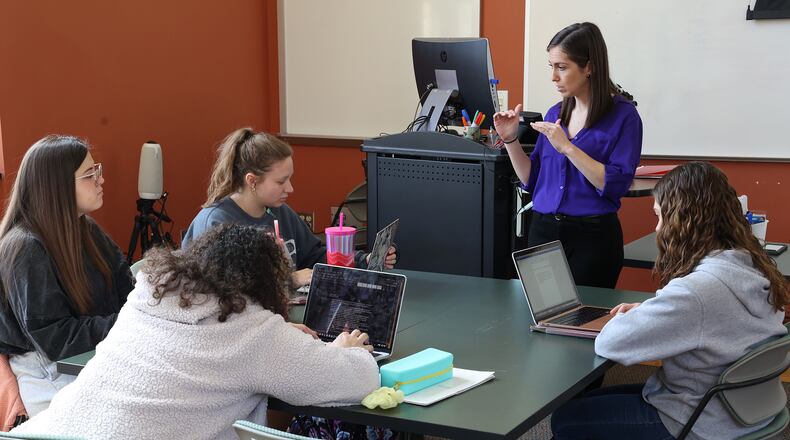The program will award a total of $5.2 million to be shared between 29 four-year public and independent colleges and universities that have chancellor-approved educator preparation programs, the Ohio Department of Higher Education (ODHE) and Ohio Department of Education (ODE) announced last month.
“These funds will spur innovative and collaborative approaches to addressing the educator shortage in Ohio,” Chancellor Randy Gardner said. “The awards will fund a diverse group of programs at public and independent colleges and universities in every region of Ohio to increase the pipeline of licensed educators that we know our communities and school districts need.”
Yontz said the STEP project is a partnership between the three schools to “increase the diversity of a number of teachers Wittenberg prepares to be hired in the Springfield City School District and other school districts across the state.”
The goal of the project, which is in its first year, is to increase the overall number of teachers, with the hope to also increase diversity among educators.
Currently, 10.8% of Wittenberg’s education students and 12% of Clark State’s education students are non-white. In the Springfield district, 50% of students are not white and 146 teachers are not white, while 906 are white or Caucasian, and 91 were either unknown or not provided.
“We hope the STEP project provides opportunities for all Clark State students, especially students of color to finish their teacher preparation program at Wittenberg,” Yontz said.
Statewide in school year 2017-18, about 5% of teachers were not white, while about 30% of students were not white, according to the ODE.
The number of teachers available in the state has become a concern for area districts. Ohio issued a fluctuating number of teaching licenses since 2000, with between 45,000 and about 67,000 licenses issued each year, according to ODE data. The number of licenses issued fell steadily between 2010 and 2017 but began to go back up again in 2018.
“We are facing an existential threat by not having enough educators to engage in this work,” Yontz said. “The Springfield educational community is experiencing trends that are occurring nationally in teacher preparation. Our nation (and local community) has seen a decrease in traditional educator preparation program enrollment over the past decade.”
This project is to use the newly launched transfer agreements between Wittenberg and Clark State to produce more educators for the Springfield district. The district, which serves 7,000 students with over 500 staff members, is primarily economically disadvantaged children.
“Perhaps most important to this project is the near perfect laboratory the district provides for teacher preparation,” Yontz said. “The district has outstanding educators who serve as exceptional mentors for those studying to enter the classroom.”
Yontz said, just like other public school districts across the nation, Springfield needs more educators at all levels. As of February, the district had 17 teaching positions open, with most centering around the primary and intervention specialist licensure areas.
This project targets students who have existing ties to the Springfield or Clark County area and are likely to remain in the region as an educator. Around 20% of Wittenberg students are from Clark County and 39.2% come from Clark or two adjacent counties.
The project will invest in students who first enroll at Clark State to complete their Associate of Applied Science (AA) in Education, transfer to Wittenberg’s teacher education program, and then become employed by the Springfield district or others in the state for at least three years after graduation. Students who come from Clark State with a 2.5 GPA and positive recommendations from their professors will be directly admitted to Wittenberg’s Teacher Education Program.
Beginning in spring, students who are enrolled in their final year of the AA program at Clark State will be informed of this project and given information on how to continue toward becoming a teacher at Wittenberg, with the first participants beginning in fall.
Each participant in the STEP project in 2022-23 and 2023-24 will be given an annual scholarship toward Wittenberg tuition and fees, including a guarantee for students who remain enrolled in the teacher education program beyond the summer of 2024 to be provided an equivalent scholarship until their program is completed.
The management team for the STEP project will include one person from each school, and will meet three times a year to assure the program processes are completed.
Other local colleges that were also awarded as part of the Ohio Grant Program include Miami University, Wright State University, Ohio University and The Ohio State University.
About the Author

